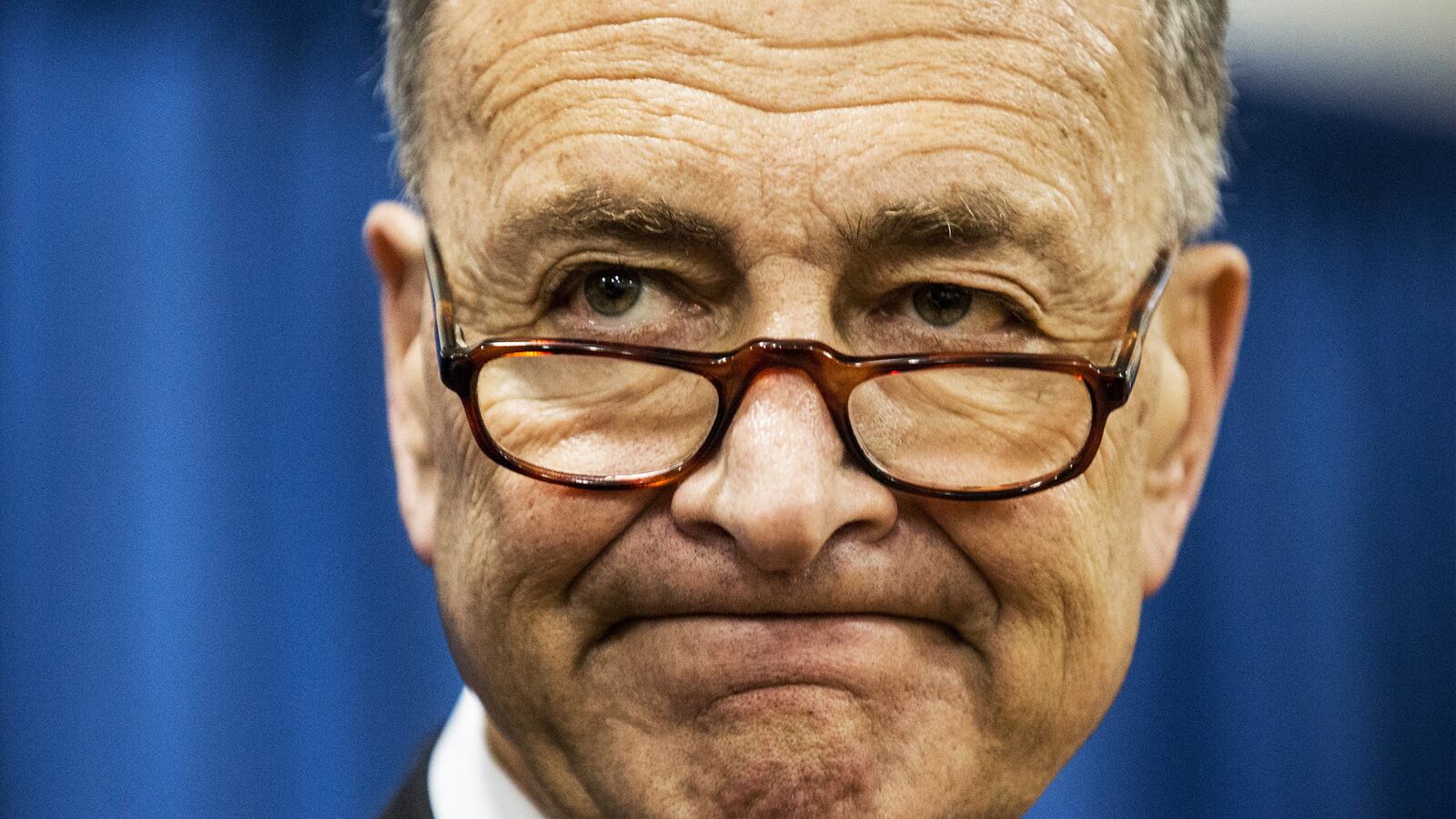Senate Minority Leader Chuck Schumer (D-NY) urged a federal agency last week to reconsider tariffs placed on newsprint that have wreaked havoc on local papers and threatened their long-term survival.
In a letter to the International Trade Commission, the Democratic Minority Leader—who noted that he is a hawk on trade— joined the bipartisan push to urge the reversal of the Trump administration’s tariffs.
“I am a strong supporter of the aggressive use of our trade remedy laws to level the playing field for U.S. producers,” Schumer wrote. “Our trade laws are intended to protect U.S. workers from unfair trade practices. In this case, however, it is possible that only a single U.S. producer will benefit from the duties, while many U.S. workers in downstream industries will be harmed.”
Schumer added that he had been informed that “sustained duties threaten the viability of many local newspapers, which I believe are vital to an informed citizenry and a thriving democracy.”

In January, the U.S. Department of Commerce announced its initial decision to impose the tariffs on Canadian paper at the request of one mill in Washington state. Since then domestic newspapers have been issuing dire warnings about their economic viability by dramatically raising printing costs. An industry group has even undertaken a lobbying campaign on Capitol Hill, noting that the tariffs had already resulted in layoffs at major publications like The Tampa Bay Times and The Salt Lake Tribune.
Members of Congress have been receptive. Both Republicans and Democrats offered testimony and legislative remedies to the problem. In May, both of Maine’s senators introduced the Print Act, which called for a suspension of the import taxes on groundwood paper until the Department of Commerce could examine its broader effects. The bill got dozens of co-sponsors.
Two months later, 19 members of Congress including Sens. Susan Collins (R-ME), Johnny Isakson (R-GA), Doug Jones (D-AL) and Bob Casey (D-PA) testified in person to the ITC about the danger of the tariffs. That’s in addition to the more than 90 members of the House and Senate who have drafted letters opposing the tariffs.
The pressure appeared to make some impact as the Commerce Department announced in early August that the tariffs would be capped at 16.88 percent, after being as high as 22.16.
But now, the hope for publishers is that those tariffs could disappear completely, with the assisted influence of people like Schumer. The Senator’s letter to the ITC was submitted on August 17. The committee is expected to vote on August 29 on the future of the tariffs.






